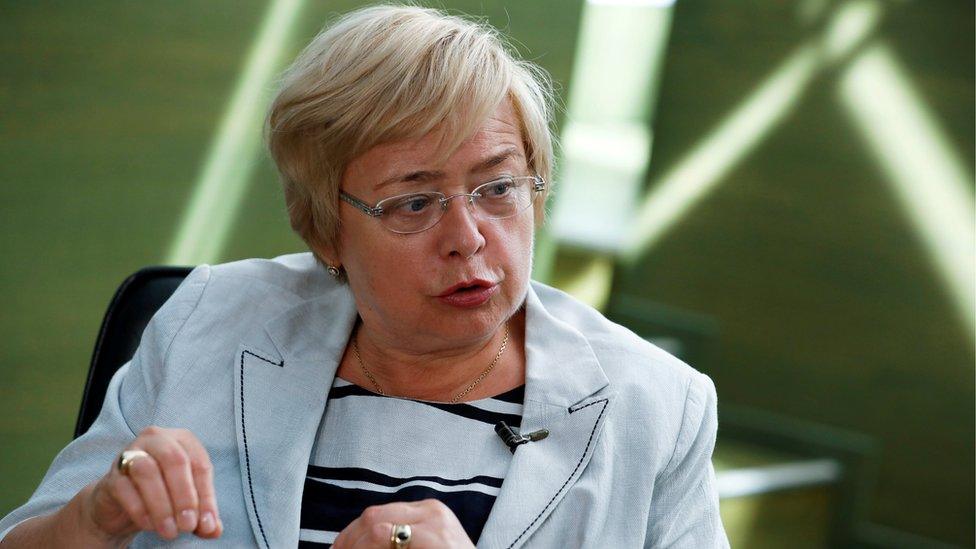Poland referred to European court over judges' forced retirement
- Published

Head of Poland's Supreme Court Malgorzata Gersdorf has called the new rules a "purge"
Poland has been referred to the European Court of Justice (ECJ) over a rule which forced almost a third of the country's top judges out of office.
The government lowered the retirement age of Supreme Court judges to 65, in what opponents say is an attempt to appoint more favourable replacements.
The European Commission has now sent the case to the ECJ, saying the change undermines judicial independence.
It is the EU's latest move in a long-running feud over Poland's judiciary.
In December last year, the European Commission began disciplinary proceedings against Poland, accusing it of significant interference in its own courts. It invoked a European rule called Article 7 - the first time the commission had ever done so.
In the months since, Hungary has also faced censure under Article 7 over the actions of its leader Victor Orban.
Hungary and Poland have vowed to support each other in the face of what they see as political interference by the European Union in domestic matters.
The EU, meanwhile, says it is deeply concerned about Poland's actions, which it says undermine the rule of law.
Why is Poland in the dock over its courts?
December's decision to begin disciplinary proceedings against Poland was based, in part, on concerns around powers over the courts which were given to the president and minister of justice.
But the European Commission also warned Poland not to change the retirement age of judges.
Nonetheless, the country's government brought in the new rules for the Supreme Court, effective from 4 July this year.
The BBC's Paul Adams examines the political scene in Poland
Since it implemented the rule retroactively, 30% of the judges on the Supreme Court - 27 out of 72 - were suddenly forced into retirement before their terms were supposed to end.
That included Chief Justice Malgorzata Gersdorf, aged 65, who turned up to work the following morning flanked by supporters. She labelled the rule change a "purge" of the courts.
Protests were also staged in several Polish cities against the rule change, and Ms Gersdorf has continued to go to work in defiance of the government.
The Polish government, however, said the rule change was needed to make the court system more efficient, and to remove communist-era judges.
What case is the EU making?
In a statement, the European Commission said it was sending the case to the courts because Poland was "creating a risk of serious and irreparable damage to judicial independence in Poland, and therefore of the EU legal order".
A spokeswoman also cited harm to the principle of the "irremovability of judges".
As a result, Poland is failing to fulfil its obligations under the Treaty of European Union and the Charter of Fundamental Rights, she added.
The commission wants the court to issue an interim order, requiring Poland to revert to the old system, and has asked the ECJ to fast-track the case - indications of how seriously it views the matter.
Previous negotiations between the European and national authorities have ended in a deadlock, with Poland steadfastly rejecting the commission's concerns.
Polish Senate speaker, Stanislaw Karczewski, said the referral to the ECJ was entirely expected, and he was confident the commission's complaint would not be upheld.
"The Polish government has very strong, substantive, legal arguments that will be presented," he said, adding that Poland had always respected the court's judgements.
- Published20 December 2017

- Published2 July 2018
